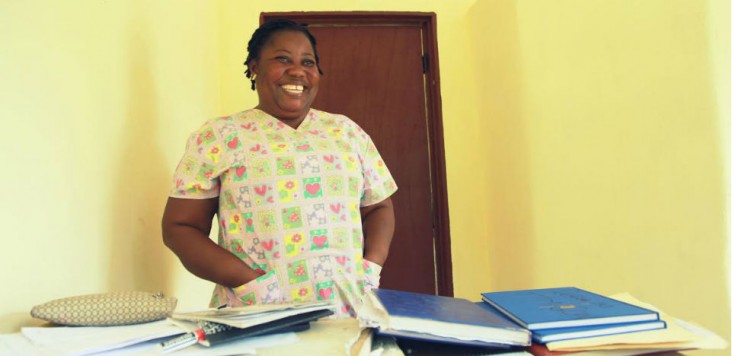
USAID is working to address the longer-term recovery of health systems with the goal of improving the ability to manage health crises, improve service delivery, and increase demand for health services within communities.
BACKGROUND
The Ebola outbreak devastated lives and livelihoods in some of the most vulnerable countries in the world, infecting over 28,600 people in Guinea, Sierra Leone and Liberia, and killing over 11,300. The epidemic, which traces its origins to Guinea in December 2013, was the largest recorded Ebola outbreak in history.
The three Ebola-affected countries faced several challenges in addressing the epidemic early on, including resistance to Ebola control efforts in communities, the presence of Ebola in urban settings, inadequate treatment facilities, and lack of training on infection prevention and control.
National and local health care systems in the three countries were overwhelmed by the scope and scale of the epidemic. Health facilities lacked sufficient supplies, such as beds and medicines, and required more qualified health care workers. This severely limited the facilities’ ability to provide health care services required during the Ebola outbreak.
WHAT WE’RE DOING
USAID and its partners are strengthening healthcare systems in the three countries in such areas as supply chain management, governance and management, and human resources. These efforts include strengthening curriculum, teaching, and infrastructure at pre-service training institutions, and train faculty to develop a generation of new and better-trained clinicians and healthcare managers. We also support the procurement, delivery, and management of essential medicines, and provide technical assistance for the integration of infection prevention and control (IPC) supplies into routine systems.
In addition, we ensure that the health systems are better prepared to respond appropriately and adequately to future public health crises by strengthening the application of health information systems, enhancing quality management and supervision at health facilities, and supporting the governments in developing health policies and planning.
RESULTS
- In Liberia we assisted the Ministry of Health with costing, warehousing, and delivery of IPC commodities, and distributing over 300,000 doses of routine vaccines to facilities. We also distributed essential medicines and basic IPC supplies to 77 facilities in the country with 97 percent distribution coverage. In addition, we renovated an essential medicines warehouse in Monrovia.
- In coordination with the government, we are helping to draft the National Essential Medicines List, and strengthening facility-level product management practices through use of a continuous results monitoring system and treatment/dispensing registers.
- In Guinea, we embedded advisors in the Ministry of Health to support development of a new national health management information system. We expanded technical assistance to the government to introduce a new electronic data system that will be available at both the national and prefecture levels. We also completed inventory of IPC material, and assessment of the storage condition and management of IPC in the country, and determined that 89 percent of ordered commodities were available in all facilities.







Comment
Make a general inquiry or suggest an improvement.